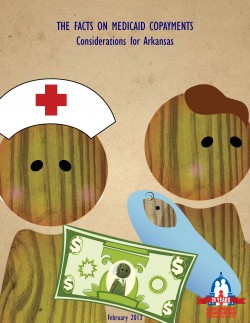
Arkansas has an opportunity to strengthen its Medicaid program and stimulate economic activity statewide by extending coverage to an estimated 250,000 uninsured Arkansans, including 10,000 children. Arkansas can cover parents and other adults with incomes up to 138 percent of the Federal Poverty Level (FPL), which is about $31,800 for a family of four. The federal government will pay the full cost for newly eligible adults until 2017 and no less than 90 percent after that. Arkansas’s current Medicaid eligibility limit for adults is one of the most restrictive in the country, permitting few non-elderly eligible adults who are not disabled, pregnant, or parents/ caretakers to enroll. As a result, strengthening Medicaid could have an immense impact on the state’s health. Arkansas’s 89th General Assembly will decide whether Arkansas will take advantage of this opportunity that is projected to benefit the state’s budget, the economy, job creation, and, most importantly, families.
Once Arkansas decides to extend Medicaid, the state will continue to have flexibility to determine program details that affect the success of Medicaid. The federal government sets basic parameters aligned with Medicaid’s goal to provide medical services for vulnerable and low-income persons. However, states have broad flexibility within those limits to customize Medicaid to their state’s needs. The design of coverage can affect access to care. Fiscally responsible policies can be implemented that do not enact barriers to coverage and care or shift costs to families who cannot afford it.
This brief outlines current rules for cost-sharing in Medicaid, reviews research on cost-sharing and its relation – ship to access to care, and provides recommendations for structuring cost-sharing without negatively impacting outcomes.
SUMMARY VERSION: Download a one-page version of this report for a condensed overview of the facts on medicaid copayments.
